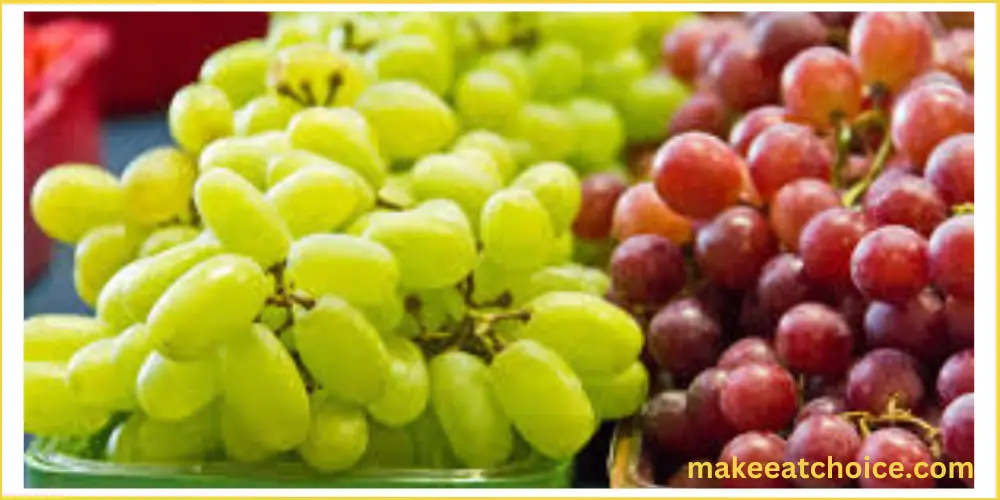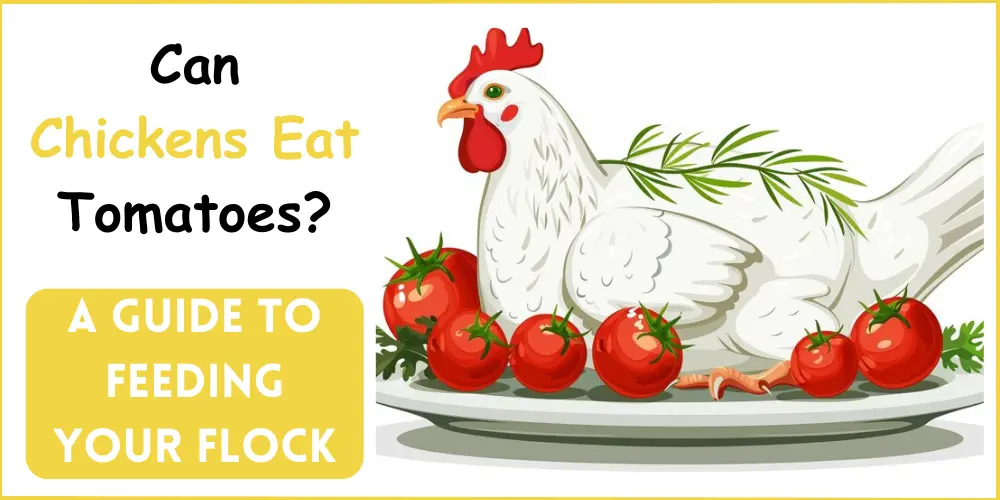
While examining the dietary examples of our avian sidekicks, the unassuming grape may not quickly spring to one’s consideration. Even creature nutritionists and terrace poultry proprietors might be worried about the well-being of taking care of this sweet organic product for their birds. This article will examine whether can chickens eat grapes, the healthy benefits of grapes, and the best strategies for taking care of this natural product for your group.
Grapes are a globally renowned, delicious produce that individuals esteem. Delightful in numerous nutrients, these minuscule orbs of sweetness are a favourite nibble of many. In contrast, the discourse surrounding the feeding of grapes to poultry is frequently as diverse as the hues of the grapevines. We will examine the complexities associated with providing can chickens eat grapes as a food source for our avian companions in a manner that is both enlightening and advantageous for your poultry.
Can Chickens Eat Grapes?
Chickens can, to be sure, appreciate grapes as a delicious and nutritious bite. Grapes, whether green, red, or dark, are ok for chickens when taken care of with some restraint and washed utterly to eliminate any pesticides.
The short answer is Yes, chickens can enjoy grapes as an occasional treat! But remember, moderation is key: cut them up for smaller birds and offer them only a few at a time.
They give fundamental nutrients A, C, and B complex, alongside significant minor elements that can help a chicken’s well-being. In any case, it’s urgent to guarantee the grapes are new and abstain from overloading, as this treat can prompt stomach-related issues.
While grapes significantly expand their eating routine, they shouldn’t supplant a chicken’s essential feed. Continuously focus on a fair eating regimen for your padded companions.
The Risks of Feeding Grapes to Chickens
While there are possible advantages to taking care of grapes for your group, there are likewise a few dangers to consider. Grapes contain limited quantities of tannins, which can cause stomach-related issues in chickens whenever consumed in enormous amounts.
Furthermore, the seeds and skins of grapes can represent a gagging risk for chickens, particularly if they are not squashed or broken into more modest pieces. Likewise, with any treatment, control is critical regarding taking care of grapes for chickens.
Best Practices for Feeding Grapes to Chickens
While considering integrating grapes into your chicken’s eating routine and make eating choice, it is prudent to stick to a few prescribed procedures.
Before giving can chickens eat grapes to your poultry, you should wash them carefully. This stage removes any contaminations or pesticides that might be available on the natural product’s outside.
To forestall stifling risks, eliminating any seeds and squash or cutting more extensive natural products into more modest pieces is also fundamental.
How to Safely Feed Grapes to Chickens
Grapes should be taken care of by poultry sparingly and with the critical wellbeing precautionary measures set up.
Before being taken care of, grapes should constantly be scrubbed to eliminate any expected pesticides and pollutants.
Ensure chickens consume ready grapes; unripe grapes contain tannins that can cause stomach trouble and thwart assimilation.
How Many Grapes Can Chickens Eat?
Even though poultry may infrequently consume grapes, it is essential that they not be overloaded. It is mainly protectedive grapes as an extravagance instead of a considerable part of their eating regimen.
Treats ought to comprise 10% of the complete food utilization of a chicken to ensure that their essential feed supplies generally fundamental supplements. Serving a couple of grapes for each poultry on more than one occasion each week is sufficient.
Nutritional Benefits of Grapes for Chickens
Grapes are loaded with fundamental nutrients and minerals that can help chickens’ general well-being. They are plentiful in L-ascorbic acid, which is crucial to safe well-being and chicken sickness counteraction.

Furthermore, grapes contain cancer-prevention agents that can help safeguard against cell harm and further develop heart well-being. In any case, it’s memorable and urgent that grapes shouldn’t be swapped for a fair eating regimen for chickens.
The Health Benefits of Grapes for Chickens
The wholesome benefits of grapes for chickens are equivalent to those seen in people. Grapes contain carbs and sugars, which can give a quick jolt of energy.
It can be especially invaluable for laying hens when shedding or laying eggs. Additionally, grapes have a significant hydration factor, particularly in humid weather.
What is the Optimal Method for Feeding Grapes to Chickens?
Various methods exist for feeding grapes to poultry, one suitable for a particular flock size and personal preference. Providing grapes in their whole form can offer them an added amusement source as they peck the fruit.
To prevent suffocation, Grapes can be mitigated by halving them, particularly for smaller birds. Additionally, one could contemplate combining mashed grapes with the regular feed of their poultry or diluting them with water to produce a grape “slushie.”
Additional Tips for Feeding Grapes to Chickens
Grapes are one example of a new treat that should be introduced progressively into your chicken’s diet. Observe your chickens to ensure they do not experience adverse reactions after consuming grapes. Although allergic symptoms are uncommon, keep a watch out for them.
Maintaining vigilance regarding environmental factors is crucial, including the possibility that moldy grapes may enter the flock’s feeding area. Consistently clear their living spaces to ensure optimal health.
Raisins vs. Grapes for Chickens
Raisins, which are dried grapes, may also be provided to chickens. Nevertheless, owing to their heightened concentration, these substances comprise more sugars and may pose digestibility challenges for poultry.
Present raisins in a reduced quantity relative to freshly harvested grapes. Although dehydrated, the dehydrated form is still safe for your poultry to consume, but only in moderation.
FAQs
Is it OK to Feed Grapes to Chickens?
As a treat, grapes may be fed to poultry in moderation. To prevent choking, ensure they are divided in half and thoroughly washed to eliminate pesticide residues.
Are there any Fruits that Chickens can’t Eat?
Avocados are toxic to chickens due to persin, which should be avoided. Additionally, it prevents the provision of seeds from fruits such as plums, cherries, and peaches, as they contain cyanide.
Are Grape Vines Safe for Chickens?
Grapevines are generally safe for chickens to ingest in moderation and peck at. While offering supplementary nutrition and serving as a natural foraging opportunity, they should not be substituted for their principal sustenance.
What Fruit do Chickens Love?
Although chickens enjoy a wide range of fruits, their preferences include watermelon, strawberries, blueberries, and grapes. These are a delectable treat and a source of hydration and vitamins while engaging in foraging activities
Conclusion:
Chickens can, without a doubt, eat grapes, and when appreciated with some restraint, this sweet natural product can be a magnificent and solid treat for your padded companions. Make sure to wash and look at your grapes for readiness before taking care of them to your chickens, and never make them the essential wellspring of food. Noticing these basic rules can assist with guaranteeing that can chickens eat grapes in the delight of this grape plantation treasure.
Likewise, with any new food, it’s fundamental to slowly bring grapes into your chicken’s eating routine and consistently screen their responses. By following these prescribed procedures, you can securely integrate this heavenly organic product into your group’s eating regimen while giving them the essential sustenance for a cheerful and sound life.
References:
- By



